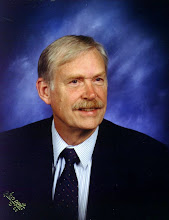Having grown up not in a military family but in a family where regular Army officers were frequent visitors, I knew the name “George S. Patton” in the late 1930’s and early 1940’s. Ft. Knox was about thirty miles from my house. Then when a first cousin became Patton’s HQ Commandant at Ft. Benning, GA, I learned even more about this quintessential American hero.
One thing I learned was to respect the military. Those poor people before WWII were paid very little and were shortchanged by a stingy Congress at every turn. Yet, they persevered and stood ready to protect an ungrateful nation. Most of the men in the military were a dedicated group of soldiers.
Another thing I learned was to honor sacrifice. One by one, older boys in my Boy Scout troop disappeared into the military for active duty in other countries. They were my personal heroes. Some made it back, some did not. I didn’t say to myself, “Now, if the Military does well, the President will look good and may get more votes, so I better do some real serious fault-finding.” Such shallow people are not worthy of the sacrifices made in their names.
Finally, I learned that if I were to make an impact on my world, I needed to join up. So I joined as soon as I was eighteen. In time the Navy pointed out that while I was very qualified as an electronics technician, my feet and ankles were a bit deformed and they could no longer use my services. So they sent me home.
I always felt guilty and never lost my respect for those who wore the uniform. I was quite willing to give up my life for my country. And then one day I had a sobering thought: the Military doesn’t ask us to die for our country. It asks us to kill for our country. That is harder for some people. I often wonder if I could measure up. I happen to be a good shot and would have found out quickly if I were in the Army.
When I wrote about my cousin’s valuable and dedicated four years under the famous generals in Europe and North Africa, I came to this conclusion; on this Memorial Day of 2005, I think it is a good one:
It is the blessing of this nation that when problems arise, ordinary people step out from the backwoods and the cities to lead magnificently. This tradition of leadership began well before the Revolutionary War, and the halls of American history are covered with great names: George Washington, George Rogers Clark, Andrew Jackson, and U.S. Grant, to name a few. Marshall, Patton, Truscott and Mark Clark’s names will be displayed with these great people. And no doubt there will be many more in the years to come.
But the brave leaders of the future will not come from the ranks of those dainty Americans who want fried chicken but don’t want to kill any chickens to get such a tasty meal. No, the leaders of the future will come from the ranks of those who are willing to die for their country; but first, they are willing to kill for it. There is a huge difference.
Military Patton WWII conservatives Memorial Day
Sunday, May 29, 2005
Subscribe to:
Post Comments (Atom)


No comments:
Post a Comment